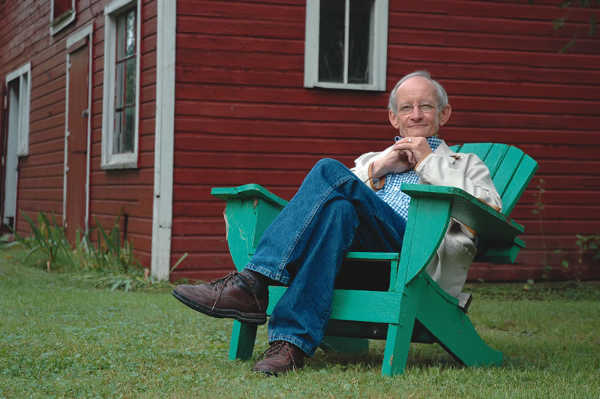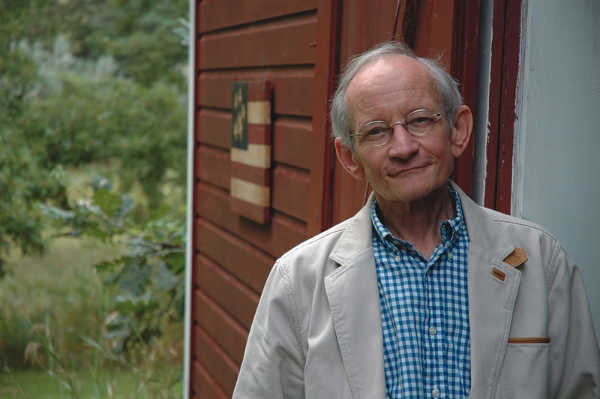- Ted Kooser
- Posted On
American Life in Poetry: Red Stilts

We’ve published more than 800 weekly columns to date, and soon I’m retiring as editor and part-time professor.
This column will continue under my name until the end of the year, when my colleague Kwame Dawes will take over.
I’m immensely grateful to my talented and efficient longtime assistant editor, Pat Emile, to the Library of Congress and The Poetry Foundation, and to the English Department at the University of Nebraska.
And, of course, for the wonderful support we’ve had from all of you readers since the day Pat and I started out, uncertain, 15 years ago.
Rather than riding a horse into the sunset, let me clop away down the block on handmade stilts with this title poem from my new book, to be published Sept. 8 by Copper Canyon Press.
Here’s how life looks to me, at eighty-one:
Red Stilts
Seventy years ago I made a pair of stilts
from six-foot two-by-twos, with blocks
to stand on nailed a foot from the bottom.
If I was to learn to walk on stilts I wanted
them red and I had to wait almost forever
for the paint to dry, laid over the arms
of a saggy, ancient Adirondack chair
no longer good for much but holding hoes
and rakes and stakes rolled up in twine,
and at last I couldn’t wait a minute longer
and took the stilts into my hands and stepped
between them, stepped up and stepped out,
tilted far forward, clopping fast and away
down the walk, a foot above my neighborhood,
the summer in my hair, my new red stilts
stuck to my fingers, not knowing how far
I’d be able to get, and now, in what seems
just a few yards down the block, I’m there.
American Life in Poetry does not accept unsolicited manuscripts. It is made possible by The Poetry Foundation, publisher of Poetry magazine. It is also supported by the Department of English at the University of Nebraska, Lincoln. Poem copyright ©2020 by Ted Kooser, "Red Stilts," from Red Stilts, (Copper Canyon Press, 2020). Poem reprinted by permission of Ted Kooser and the publisher. Introduction copyright @2020 by The Poetry Foundation. The introduction’s author, Ted Kooser, served as United States Poet Laureate Consultant in Poetry to the Library of Congress from 2004-2006.








